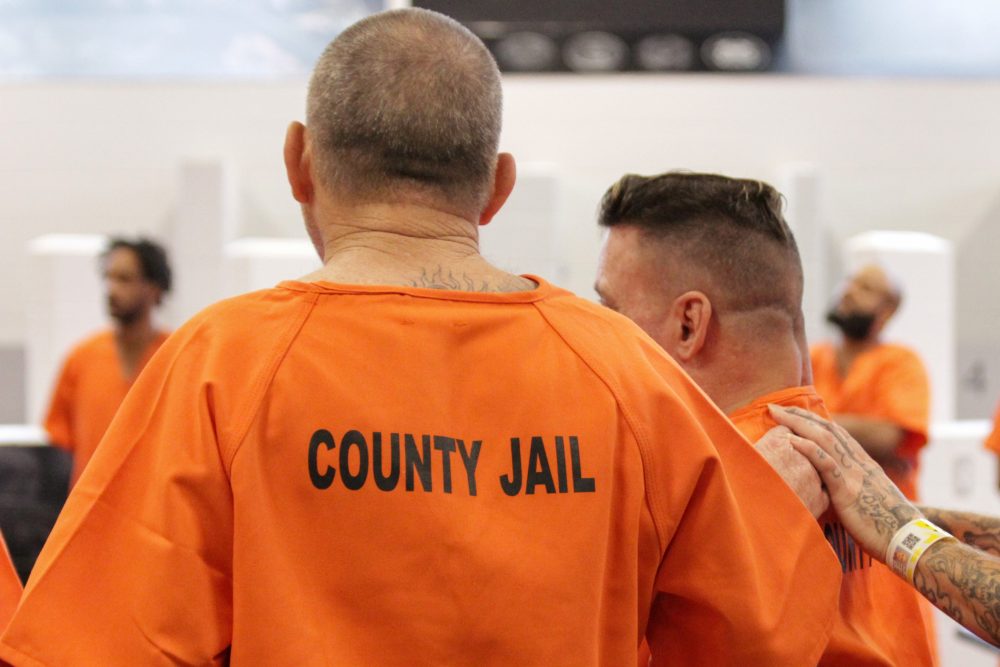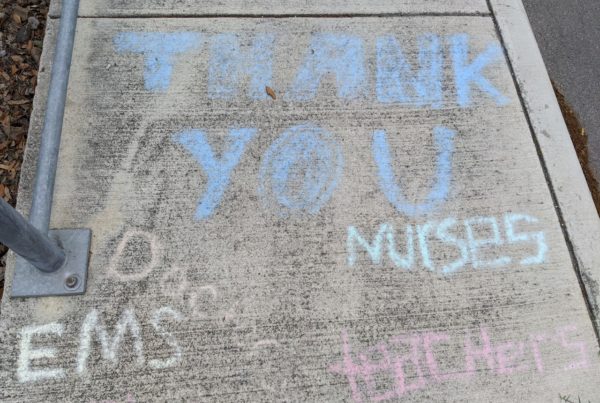In January, Gov. Greg Abbott paid tribute to State Trooper Damon Allen in his State of the State message, calling for the creation of “the Damon Allen Act.” Allen was killed in 2017 by a man out on bail for a felony offense.
This legislative session, Texas lawmakers have a number of bills to change bail practices in Texas, and most have one thing in common: They focus on making it harder, if not impossible, for people to bond out again if they’ve been arrested for another offense while out on bail.
And most seem aimed at Harris County, which after a landmark settlement has been required to make it easier for misdemeanor defendants — though not felony defendants — to bond out on their own recognizance if they can’t afford bail.
“America is the land of second chances. It is not the land of third and fourth and fifth chances when those chances end up injuring or killing a fellow citizen or a police officer,” said state Sen. Paul Bettencourt, R-Houston, at a press conference announcing what he called Caitlynne’s Bill.
He named the measure after Caitlynne Infinger Guajardo, a pregnant mother allegedly killed in 2019 by her husband, who was out on bond after assaulting her.
The leading measure this session is likely Senate Bill 21, authored by State Senator Joan Huffman, R-Houston, which limits the eligibility for certain people to be released on bond. Huffman declined to be interviewed for this story.
One advocacy group, Crime Stoppers of Houston, has counted more than 90 people, including Guajardo, who have been killed by defendants out on bond for other serious crimes.
But then there are cases like Rodney Evans, a U.S. Marine combat veteran, who suffers from PTSD. Houston Public Media spoke with him through the courtesy of the Texas Jail Project and Brothers In Arms. Shortly after Hurricane Harvey, Evans said a motorcyclist rear-ended his car at more than 150 m.p.h.
“I have a lot of stuff dealing with combat trauma. So, for me, it’s like taking me back to Desert Storm days,” Evans said. “So, I fled the scene. I panicked.”
The motorcyclist died. Police charged Evans with a felony: failure to render aid at the scene of an accident. Evans has spent more than 16 months in jail awaiting trial because he cannot afford bail.
“I’ve put in all kind of motions to get a bond reduction, PR bond,” Evans said. “I’ve put in a motion for compassionate release, because I’m over 50 years old. I have COPD and asthma, and none of that stuff gets answered.”
Jerome Van Zandt is another such example. The retired U.S. Navy cook was arrested for possession of less than a gram of crack cocaine and fleeing arrest.
He said he ran, “because, to be honest with you, I feared for my life, being an African American male and not feeling that I’m favored by the police.”
Van Zandt has been in in jail since November on a bond of $120,000, which he said he cannot afford to pay.
“We’re kind of presumed guilty for an alleged crime, and you’re here two or three months or six months to two years before you get (to) have a trial, before you get to go in front of a judge and plead a case,” Van Zandt said.
In 2019, state Sen. John Whitmire, D-Houston, tried to pass a different Damon Allen Act. That bill tried to help defendants like Rodney Evans and Jerome Van Zandt.
“Certainly (Abbott said) it more than once, even to me personally, that any financial consideration probably ought to be in a separate bill,” Whitmire said. “Well, I disagree. I think it has to be a package to where, if you don’t have money and you’re a low risk, pretrial services ought to deem you good risk and allow you out on a PR bond. If I’m going to do a bail bond bill, it’s going to be comprehensive.”
Whitmire chairs the Senate Criminal Justice Committee. It’s unlikely any bail reform bill would pass without his support.
Howard Henderson, director of the Center for Justice Research at Texas Southern University, said the push by Republicans like Abbott for bills solely aimed at keeping people in jail is a backlash to efforts to make the system more equitable, as in Harris County.

The Harris County Jail on March 18, 2020.
“Whenever we move back toward rehabilitation, and treating people fair, and making sure that people have alternative sanctions, and prison is not the end-all-be-all, then the conservatives have a tendency to want to pull us back to the far right and become more focused on tough punishments, harsh on crime,” Henderson said.
Discussions of bail reform are sometimes muddled, with a tendency to conflate Harris County’s misdemeanor bail reform — which has been in place since the adoption of Harris County’s Rule 9 two years ago — with felony bail reform, which is still the subject of an ongoing court dispute.
Harris County’s use of misdemeanor bail was ruled unconstitutional in 2017, after a federal judge found that an indigent defendant was more likely to be jailed pretrial because they couldn’t afford bail, while a person with access to money, accused of the same misdemeanor offenses and with the same criminal history, could bail themselves out.
Brandon Garrett, a Duke University law professor and the court-appointed monitor for the consent decree that resolved the O’Donnell v. Harris County lawsuit over misdemeanor cash bail, said that ruling has not since led to an increase in crime.
“What we found was whether you look at repeat offending, 90 days, 180 days, a year after a misdemeanor booking, that those rates are either the same or they’ve declined somewhat since Rule 9 was created,” Garrett said.
No similar numbers are available regarding repeat felony offenders.
So far, just one bail reform measure this session addresses both concerns of repeat offenders and low-income defendants, House Bill 2077, authored by state Rep. Ron Reynolds, D-Missouri City. As yet, it has no cosponsors and has not been assigned to a committee.
It is the only bill this session to bear the name, “the Damon Allen Act.”
As for the tougher measures, such as those proposed by senators Huffman and Bettencourt, Peter Steffensen, a staff attorney for the Texas Civil Rights Project, said calling those bills “reform” is a misnomer.
“They don’t do much to actually change bail systems across the state,” Steffensen said. “If anything, they will further entrench the status quo.”















